Srikanth Kidambi took seven days to smash India’s historic achievement of consecutive Superseries titles and recast it as a triple. In doing so, he became only the fifth man in men’s singles to snatch successive Superseries titles.
By Aaron Wong, Badzine Correspondent live in Sydney. Photos: Badmintonphoto (live)
Men’s singles: Indelibly India’s best year yet
And so it happened, an Indian player from the top half of the draw won men’s singles thus retaining cachet for his country since the last Australian and for three of the four years the event has been a Superseries. Srikanth Kidambi beat the Olympic gold medallist Chen Long, 22-20, 21-16, and his back-to-back weekend triumphs at the Indonesia Superseries Premier and Australian Superseries halts the pattern of a different champion from one Superseries to the next at 20. The streak puts him in the select company of the likes of Peter Gade and of Lee Chong Wei – who has done the quadruple – and triple uninterrupted honours belong to Chen Long, Lin Dan, and Sony Dwi Kuncoro
It could have been a personal triple for Kidambi if the all-Indian final at the Singapore Superseries had gone his way but Sai Praneeth winning there and Kidambi subsequently bettering that form has indelibly lifted India’s profile in this category. Two recent champions instead of the same name recurring is more significant and a truer measure of Indian progress.
For added perspective on the scale of what’s been culminating, two different men’s singles Superseries champions in any one calendar year alone for India would have spoken volumes. That it happened as a hat trick – plus taking into account Sameer Verma achieving Superseries runner-up status in the past 12 months – is impact of tidal wave proportions in international men’s singles.
This is not an anomaly as with Pullela Gopichand becoming 2001 All England champion or Prakash Padukone reaching world #1 during the 80s. Women’s singles, which has carried the torchlight for India at the Superseries since 2009, are now firmly accompanied by the luminosity of their male counterparts. This phenomenon supplies reassurance for all their disciplines to level up and match the broad strength of Thailand and Japan. India already showed such intentions at the Sudirman Cup by delivering upsets and scares in women’s and mixed doubles.
Reactive defender …
Season ticket holders for the week will have observed that Chen Long is, generally speaking, at the fullest of his powers, regardless of temporarily slipping out of the top 10 for a week this year and having ‘only’ the Asia Championships and Rio Olympic gold to show but nil Superseries victories since Denmark in 2015. The loyal spectators coming to every Superseries in Sydney would have gleaned more. Chen Long didn’t play like this when he started winning Superseries. The Australian years illustrates some of the genesis towards the patient men’s style becoming deeply ensconced in the world #6 Chinese. First came the stroke style followed by assurance.
Picturing archetypes, Chen Long joins the party of patient playing assured gentlemen including compatriot Lin Dan and Koreans Son Wan Ho and Lee Hyun Il. Bear in mind two other stylistic approaches that have faced Chen, the offensive and the emulator.
In the first round, Hong Kong’s Wong Wing Ki displayed comprehensive awareness of Chen’s style by dancing in rhythm with him, waiting for inroads but the net strategy and cross-court smashes he fully anticipated would come were installed at too high of a bar. Two years earlier also on Day 2, RMV Gurusaidutt attempted the same and it worried Chen then as his new instincts were still baking so it took three games to clear the round.
Memorably in 2016, the ultra offensive nineteen-year-old Anthony Ginting gave no credence to emulating and ruffled Chen with a straight games defeat. A year later, Chen’s unmovable assured spirit and the strokes enhanced by this controlled Ginting into submission. This week also saw Chen play two similarly assured gentlemen at the semi-finals and quarters and he didn’t waver from style during heavy repeated smashing or multiple winners by these opponents. Notably, explicitly upping of the pace against an in-balance Chen mostly ended up as lost rallies for each who tried.
Indian tactician in disguise
So it surprised season ticket holders that Srikanth Kidambi played quite differently in the final to how he had cut down earlier victims with risk-taking on both huge smashes towards the lines and swiftly following in. Against Chen, Kidambi’s choices of shots incorporated lessons learnt from the way others before him were penalised like beware the the Chinese straight smash from the forehand court.
It was a highly tactical and customised approach, beginning with praiseworthy patient emulation for the whole first game. Apart from once raising the tempo to test the waters which garnered the expected outcome, most of Kidambi’s smashes were spread out between the beats of the rallies. They remained sharp but slowed down to three quarter pace and delivered from three quarters deep in his own court.
Beyond the already stunning versatility to play at a rhythm unlike one’s normal self for so long, the wonderful revelation was Kidambi’s amalgamation of several refined techniques. His winning jump smashes were produced with an unflashy short stroke and crucially aided by quietly brisk steps that didn’t wake the dragon.
“I was not really thinking about winning. I did challenge myself on how long I can last when challenging him,” confirmed Srikanth Kidambi about making things happen.
Chen Long was nonplussed about this performance: “I feel I played normally. He has this ability to hold before hitting the shuttle.”
In recent mixed zone interviews Chen has been reticent to divulge about the future and frequently refers to having been on tour for many years in answer to his strategy, wins, losses, and outlook. Based mainly on the way he is playing, you could read into all of it as evidence he desires longevity because the style he wanted has been perfected.
Women’s singles: Proactive defender…
The all-Japanese women’s singles was on course to be a whitewash for Nozomi Okuhara. Her world #4 compatriot Akane Yamaguchi struggled to judge deep shuttles landing in and the net replies of Okuhara clipped the tape on the way over.
However, Yamaguchi wasn’t exactly being outplayed and in fact trying to rally herself into better judgment as her clears remained sound. One game down and facing 4-9 in the second, every aspect of Yamaguchi’s normal prowess fell into place despite Okuhara also winning that point. Fortunately, the seed of the turnaround had been sown earlier but the stalk only began shooting above the soil from 5-14 until it became 15-all. It took that long for Yamaguchi to make an impact probably because she didn’t want to earn cheap points at the expense of ruining her singles muscle memory and mentality – as we have witnessed with Chen Long’s evolution in self-belief as well as some wonderful Ratchanok Intanon shots but woeful scoreline against Tai Tzu Ying this week.
From Yamaguchi’s initial 5-point mark, whether or not the very next point became hers, the form of both ladies was on par. Even though both proactively employed deep clears, Okuhara’s bent her back to produce them while Yamaguchi got behind and jumped into hers.
Okuhara’s drops were closer to half smashes which land sharply but beyond the service line so the opponent has to pick it off the ground as well as giving herself time to recover. Yamaguchi aimed floating drops around the net cord which she could reach the replies of but Okuhara was addressing them with a touch of luck or magic.
Here on it was scintillating Japanese badminton on how two players only the height of the net, as described by the MC, manoeuvred each other around the court with different stroke production and retrieved with uniform agility.
Crazy badminton was the only thing missing for fans of theirs until moments before Yamaguchi stole the second game and Okuhara tried rescuing it. Up match point 20-19 in the second, Okuhara risked leaving a very close deep clear into her backhand corner after running into position for it. She kept her confidence for another game of equals to win her fourth Superseries in two years, 21-12, 21-23, 21-17, ironically by forcing Yamaguchi to contort her own back but be unable to reach the last shuttle.
The moment she set down her bag in the mixed zone, Okuhara raised her thumb and said, “I try in English. I’m very happy. Been a long time since my last Superseries win. My friends in Japan sent messages of support and also news of an earthquake. I wanted to win send give good news for my hometown Nagano.
“I can hear Akane has more support in the crowd. Akane fight fight in the second game. I try hard this week. I like to see how far I can go because Australia is the last time before World Championships. My goal this year is the World Championships. Last year it was the All England.”
Final results
WS: Nozomi Okuhara (JPN) beat Akane Yamaguchi (JPN) [3] 21-12, 21-23, 21-17
WD: Misaki Matsutomo / Ayaka Takahashi (JPN) [1] beat Kamilla Rytter Juhl / Christinna Pedersen (DEN) [2] 21-10, 21-13
MS: Kidambi Srikanth (IND) beat Chen Long (CHN) 22-20, 21-16
MD: Takeshi Kamura / Keigo Sonoda (JPN) [3] beat Hendra Setiawan (INA) / Tan Boon Heong (MAS) 21-17, 21-19
XD: Zheng Siwei / Chen Qingchen (CHN) [1] beat Praveen Jordan / Debby Susanto (INA) [7] 18-21, 21-14, 21-17
Click here for complete results
![AUSTRALIAN OPEN 2017 Finals – India’s phenomenal triple Srikanth Kidambi took seven days to smash India’s historic achievement of consecutive Superseries titles and recast it as a triple. In doing so, he became only the fifth man in […]](http://www.badzine.net/wp-content/uploads/ngg_featured/20170625_1622_AustraliaOpen2017_BPRS8467_rotator.jpg)
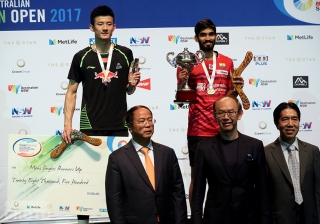
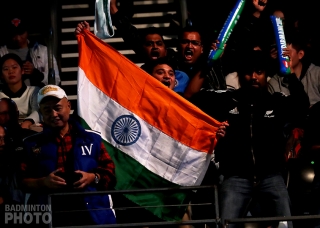
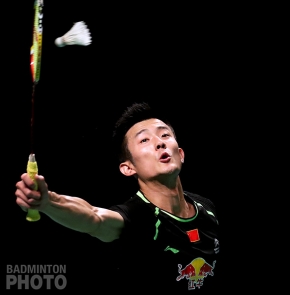
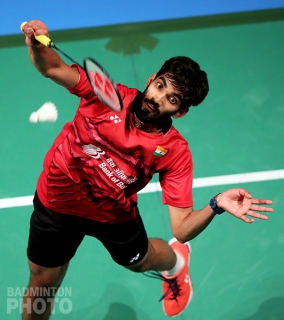
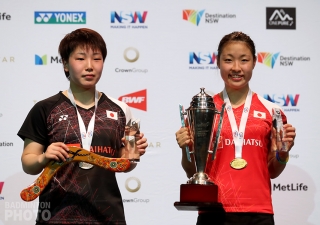
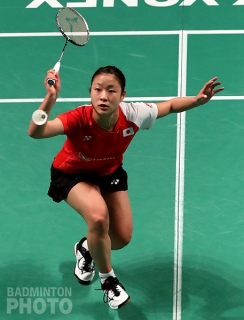

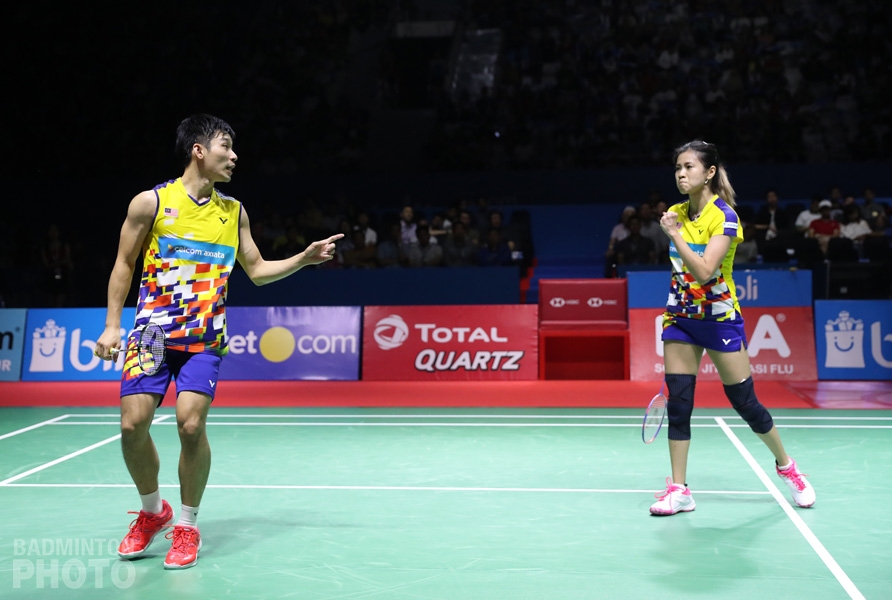
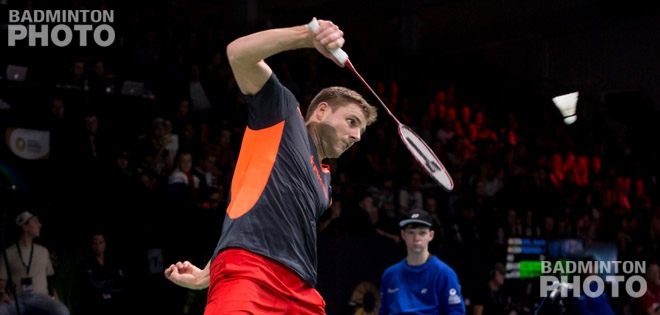
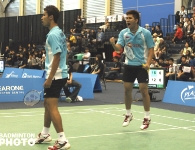

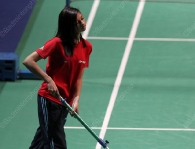

Leave a Reply